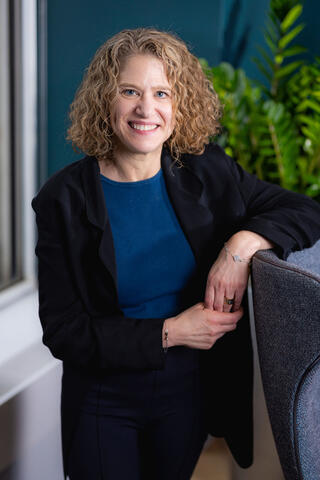B.A. in Psychology from Emory University
Special Appointments
- National Partnership to End Interpersonal Violence (NPEIV) : Steering Committee for the NPEIV 2010 Conference , Co-Chair, Research Task Force, 2008-2010
- APA Board of Scientific Affairs, representative for the Society for Family Psychology, 2007- 2011
- Think Tank on Violence and Abuse in Relationships: Connecting Agendas and Forging New Directions, Presidential Initiative by Alan Kazdin, American Psychological Association, 2008
- Co-Chair Incorporating Couple and Family Processes into the DSM Committee; co-sponsored by ABCT Couples Research & Therapy Group and APA Society for Family Psychology; multi-disciplinary organization
National Offices Held
- American Psychological Association Division 43 (Society for Couple and Family Psychology): President-Elect, President, Past-President (2013-2015); Executive Committee: Vice President for Science, 2007-2011)
- Society for the Science of Clinical Psychology (SSCP; APA Division 12, Section 3): Newsletter Editor, 2009-2012
- ABCT Couples Research and Therapy Special Interest Group: Co- President, 2003-2005; Treasurer, 2000-2002; Chair, Student Research Award Committee, 2002-2003, 2007–2009
Past and Present Editorial Board Appointments
- Journal of Family Psychology
- Journal of Social and Personal Relationships
- Partner Abuse
- Family Process
O’Hara, K.L., Duschschere, J.E., Shanholtz, C.E., Reznik, S.J., Beck, C.J., & Lawrence, E. (2019). Multidisciplinary Partnership: Targeting aggression and mental health problems of adolescents in detention. American Psychologist, 74, 329-342. doi:10.1037/amp0000439
Lawrence, E., Mazurek, C., & Reardon, K. (2021). Comparing recidivism rates among domestically violent men enrolled in ACTV versus Duluth/CBT. Journal of Consulting and Clinical Psychology, 89(5), 469-475. doi:10.1037/ccp0000649
Duchschere, J.E., O’Hara, K.L., Reznik, S.J., Shanholtz, C.E., Gerson, N., Beck, C.J., & Lawrence, E. (2022). Addressing a mental health intervention gap in juvenile detention: A pilot study. Evidence-Based Practice in Child and Adolescent Mental Health, 8(2), 236-251. doi:10.1080/23794925.2022.2042873
Fivecoat, H. C., Mazurek, C., Cunningham, C. N., Gandhi, K., Driscoll, M. W., Reischer, H. N., Hendershot, Q. E., Kritzik, R., & Lawrence, E. (2022). It’s not us, it’s COVID: Individual and relational stress among Latine couples early in the pandemic. Couple and Family Psychology: Research and Practice, 13(1), 50-66. doi:0.1037/cfp0000222
Manvelian, A., Fivecoat, H., Milek, A., & Lawrence, E. (2021). Ending the silo effect: A test of the relational spillover model. Family Process, 61(3), 1229-1247. doi:10.1111/famp.12728

